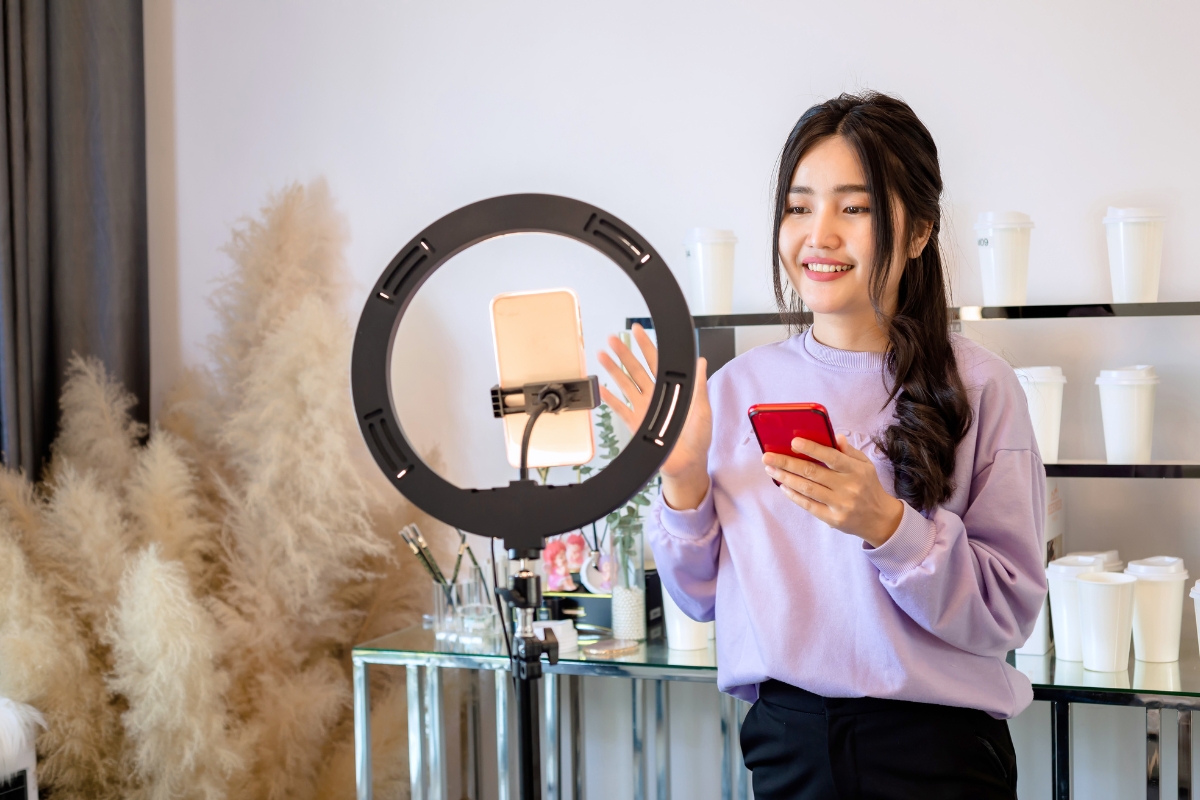Influencer marketing has become a powerful tool for brands looking to connect with audiences in a more personal, authentic way—but with great reach comes great responsibility. As partnerships between influencers and companies continue to grow, so does the need for clear ethical guidelines. From transparency in sponsored content to honesty about product experiences, navigating the fine line between promotion and integrity is essential. In this article, we’ll explore the key ethical considerations brands and influencers must keep in mind to build trust, maintain credibility, and ensure successful, responsible collaborations.
Navigating Brand Deals the Right Way: Influencer Marketing Ethics
Importance of Ethical Guidelines in Influencer Marketing

As influencer marketing continues to grow, so does the need for clear and consistent ethical guidelines. Without them, brands and influencers can easily fall into gray areas that confuse followers and damage credibility. Ethical guidelines help prevent this by setting clear expectations for behavior, content, and communication.
At the core, these rules ensure that influencers are transparent with their audiences. Whether someone is being paid to promote a product or has received a free sample, the audience has a right to know. Disclosure builds trust. When followers feel misled, it can reflect poorly on both the influencer and the brand involved. Ethical guidelines provide a structure to help avoid that disconnect and foster honest engagement.
These guidelines also promote accuracy in how products or services are presented. Influencers are often seen as more relatable than traditional ads, which makes their claims feel more personal and believable. But if those claims are exaggerated or false, the consequences can be serious. Ethical marketing avoids this by encouraging influencers to stick to real experiences and truthful reviews.
Beyond legal compliance and honesty, ethical practices include respecting the audience itself. This means being mindful of cultural sensitivities, avoiding harmful stereotypes, and not promoting unrealistic or unhealthy standards. Brands that prioritize ethics are more likely to create content that resonates across diverse audiences without alienating anyone.
Setting a consistent ethical standard also helps streamline influencer campaigns across multiple platforms. Whether working with YouTubers, TikTok creators, or Instagram influencers, everyone should follow the same basic rules when it comes to disclosures and tone. This consistency builds reliability and reduces confusion among followers who might otherwise receive mixed messages.
From a business standpoint, ethical guidelines make collaborations easier. Influencers know what’s expected of them, and brands reduce their risk of negative publicity. Most importantly, audiences benefit by receiving clear, honest, and respectful content.
In the end, ethical influencer marketing isn’t just about following rules. It’s about creating genuine connections that last. When influencers and brands operate with integrity, they lay the groundwork for lasting trust, stronger engagement, and a healthier digital landscape.
Transparency in Disclosures: Sponsored Content

Being clear about sponsored content is one of the most important parts of responsible influencer marketing. Audiences should be able to tell the difference between a personal opinion and a paid promotion. When influencers clearly label sponsored posts, they give followers the information they need to make informed decisions. This builds trust and keeps the relationship honest.
In both the United States and the United Kingdom, regulatory agencies like the FTC and CMA have created specific rules for how influencers must disclose partnerships. Tags like “#ad,” “#sponsored,” or other clear language must be easy to see and understand. Hiding disclosures in long captions or placing them where users might miss them doesn’t meet the standard. The goal is to avoid confusion and make sure viewers aren’t misled.
Being upfront about paid content also benefits influencers and the brands they work with. Influencers who are transparent with their audience come across as more authentic. Followers appreciate honesty, and that loyalty often results in higher engagement. For brands, requiring proper disclosures protects their reputation and helps them avoid legal trouble. It shows that they take their responsibilities seriously and value ethical marketing.
Lack of disclosure, on the other hand, can quickly damage trust. If followers feel like they were tricked into believing a product review was unbiased when it was actually sponsored, it can lead to backlash. Negative publicity and fines from regulators are real risks when these rules aren’t followed.
Transparency also keeps the playing field fair. When everyone is honest about their partnerships, audiences can make better comparisons between products and decide who they want to follow or support. It raises the standard for the entire industry and helps filter out shady practices.
At the end of the day, disclosing paid partnerships isn’t just a legal requirement—it’s a sign of respect for the audience. It shows that both the influencer and the brand value honesty over short-term gains. When done right, transparency strengthens the connection between creators and their followers and lays the foundation for long-term credibility.
Ethical Considerations When Promoting Products

Promoting products as an influencer comes with real responsibility. Ethical marketing goes beyond simply tagging a post with “#ad.” It also means being honest about the product itself. If you are recommending something to your audience, especially in areas like health, skincare, fitness, or finance, it’s important to actually know what you’re talking about. That means using the product yourself or taking time to research it thoroughly.
Making claims you can’t back up damages trust. For example, if you promote a supplement and say it clears skin or boosts energy, those statements need to be supported by personal experience or reliable information. Overselling a product just to make a quick buck may lead to short-term gain, but it usually costs you credibility in the long run.
The responsibility doesn’t fall only on influencers. Brands also have a role to play. They should give influencers clear, accurate product information and avoid pushing for claims that are exaggerated or misleading. No influencer should feel pressured to say something that isn’t true just to land a deal. Honest marketing works better for everyone involved.
A smart approach is for brands and influencers to agree on a review or approval process before any post goes live. This helps catch problems early, keeps messaging consistent, and ensures that any statements about the product are fair and realistic. When influencers stick to what they know, and brands support that with facts, the end result is better content and a more trustworthy relationship with the audience.
At its core, ethical promotion is about respect—for the consumer, for the influencer’s voice, and for the brand’s reputation. Followers come to trust influencers because they believe in their honesty. Breaking that trust for a single campaign can do lasting damage. But when influencers stick to the truth and promote only what they genuinely believe in, their endorsements feel authentic and meaningful.
The most successful influencer partnerships are built on transparency, shared values, and a mutual commitment to doing things the right way.
Impact of Misleading or Deceptive Marketing Practices

Misleading or deceptive marketing does more than just damage a single campaign—it can have lasting effects on everyone involved. When influencers exaggerate product results or fail to clearly disclose paid partnerships, the audience often feels misled. That loss of trust doesn’t go away easily. Followers may unfollow or disengage altogether, and it can take a long time to rebuild that credibility.
Influencers are not the only ones at risk. The brands they work with can also face serious consequences. If a product is promoted in a way that’s dishonest or confusing, the brand’s reputation may suffer. Consumers may question the company’s values or choose to take their business elsewhere. In competitive markets, that kind of hit can do real damage.
There are also legal risks to consider. Around the world, government agencies like the Federal Trade Commission (FTC) in the U.S. or the Advertising Standards Authority (ASA) in the U.K. are cracking down on deceptive advertising. Influencers and brands that don’t follow the rules—such as failing to disclose sponsorships or making false claims—can face fines, lawsuits, or public warnings. In some cases, social media platforms may even suspend influencer accounts or remove monetization privileges.
The penalties are real, but the deeper cost is to long-term trust. Audiences today are smart. Many people already approach influencer content with some skepticism. If even a small part of your message feels dishonest, people are quick to tune out. And once trust is lost, it’s tough to earn back.
That’s why transparency and honesty should never be seen as optional. The best influencers stick to what they know and believe in. They test products, ask questions, and share their honest opinions. Brands that support this approach—not just with talking points but with real facts—are more likely to build lasting relationships with both creators and customers. In the end, cutting corners might get you a quick sale, but doing things the right way builds a reputation that lasts.
Building Trust and Credibility with Authenticity

In influencer marketing, authenticity is what makes people pay attention—and stick around. Followers aren’t looking for polished ads or rehearsed scripts. They want to hear from real people who are honest about their experiences, whether good or bad. That kind of honesty builds trust, and trust is what makes recommendations matter.
Influencers who point out both the strengths and shortcomings of a product come across as more believable. Their content feels less like a sales pitch and more like a helpful tip from a friend. When someone admits that a product isn’t perfect but still explains why they like it, that honesty stands out. It tells followers that the influencer values their trust more than a quick payout.
Brands have an important role to play here. Giving influencers strict talking points or requiring them to stick to a script can backfire. Instead, companies should focus on partnerships built around shared values. Letting influencers speak in their own voice, share real stories, and explain why a product fits into their life makes the message more convincing. People can tell when something feels forced, and they can also tell when it’s genuine.
Authenticity doesn’t just improve content—it builds long-term loyalty. When followers feel like they can rely on someone for honest opinions, they’re more likely to listen again in the future. That means stronger engagement, better relationships, and ultimately, more meaningful results for the brand.
Encouraging this kind of transparency also leads to smarter influencer campaigns. The best-performing posts are often the ones that feel the most natural. A casual video, a behind-the-scenes photo, or a thoughtful caption can do more for a brand than any perfectly edited image ever could.
In the end, authenticity is not a buzzword. It’s the foundation of trust in influencer marketing. When influencers feel free to be real and brands support that approach, everyone wins. The content becomes more relatable, the audience becomes more engaged, and the connection between the influencer and their followers grows stronger over time.
Balancing Creative Freedom with Brand Expectations

Finding the right balance between brand messaging and influencer creativity is one of the biggest challenges in influencer marketing. Brands want to make sure their values and goals are represented clearly. Influencers want to stay true to their voice and speak honestly to their audience. When handled well, this balance can lead to some of the most engaging and effective content out there.
The key is clear communication from the start. A good campaign starts with a solid brief that outlines what the brand needs—core messages, tone, product details, and any non-negotiables. But that brief shouldn’t be a script. It should leave space for the influencer to interpret the message in a way that feels natural to them.
Influencers know what their followers respond to. Their style, tone, and sense of timing are what built their audience in the first place. When brands try to control every word or dictate a specific format, the final result often feels stiff or forced. Audiences can tell, and they tune out. On the other hand, when brands give influencers room to be themselves, the message is more likely to land.
That said, creative freedom doesn’t mean anything goes. Regular check-ins and honest feedback are important throughout the process. Brands should feel comfortable speaking up when something is off track, and influencers should feel supported, not micromanaged. It’s about collaboration, not control.
Setting expectations early and keeping communication open makes it easier to adjust along the way. Sometimes that means reworking a caption. Other times, it means trusting the influencer’s instincts and letting a post go live that’s a little less polished but a lot more real.
In the end, influencer partnerships work best when both sides bring something to the table. Brands offer purpose and direction. Influencers bring personality and trust. When these elements are balanced well, the result is content that feels authentic and delivers real results. That’s what makes people stop scrolling, pay attention, and actually care about what’s being shared.
Strategies for Maintaining Integrity in Collaborations

Maintaining integrity in influencer partnerships takes more than just good intentions. It requires a clear, consistent strategy that supports ethical behavior and open communication from the start of a campaign to its final post.
One useful step is creating a code of conduct. This document should clearly outline expectations for both the brand and the influencer. It can cover things like disclosure guidelines, what kind of language or claims are acceptable, and the process for content review and approval. Having everything written out helps prevent misunderstandings and gives both parties a shared understanding of what’s expected.
Beyond documentation, regular communication is essential. Brands and influencers should talk openly about their goals, values, and creative approaches. When both sides feel heard, it’s easier to build content that is both genuine and on-message. If either party feels uncertain or uncomfortable, they should speak up early. Addressing concerns right away builds trust and prevents bigger issues later on.
Ongoing education is another smart way to support integrity. Brands can offer training sessions for influencers on things like FTC disclosure rules, avoiding misleading claims, and understanding platform-specific guidelines. Influencers, in turn, can take initiative by attending webinars, reading updates from industry leaders, or subscribing to newsletters focused on influencer marketing. Staying informed helps everyone make better decisions.
It also helps to work with influencers who already show strong values in their content. Look for partners who are known for being honest with their audience, even if it means sharing a balanced review or declining a promotion that doesn’t feel like a fit. These types of influencers are more likely to treat collaborations seriously and follow through with care.
Finally, track and review your partnerships regularly. Look at how the content performs, how followers respond, and whether the messaging stays consistent with your brand’s reputation. Use these insights to fine-tune future collaborations.
By combining clear guidelines, open dialogue, and a commitment to ongoing learning, both brands and influencers can maintain trust and credibility in every campaign. This is what leads to long-term success, not just for one promotion but for a lasting reputation.
Legal Implications and Compliance Requirements

Influencer marketing comes with serious legal responsibilities, and the rules are only getting stricter. In the United States, the Federal Trade Commission (FTC) requires influencers to clearly disclose when they have a financial or material relationship with a brand. This includes sponsored posts, gifted products, affiliate links, or any type of paid partnership. If these disclosures are missing or hard to spot, both the influencer and the brand could face fines and damage to their reputations.
In Europe, the laws are also strict. The Unfair Commercial Practices Directive requires marketers to be honest and not mislead consumers. On top of that, individual countries may have their own specific regulations, making it important for brands working with international influencers to stay informed on local rules.
To stay compliant, every partnership should be documented in writing. This includes outlining the scope of work, compensation, and any content expectations. Keeping a record of emails, contracts, and even direct messages can help in case there are questions down the road.
Proper disclosures are non-negotiable. On platforms like Instagram or TikTok, the disclosure should appear at the start of a caption or video. Hashtags like #ad or #sponsored are typically accepted, but they need to be easy to see. Burying them in a long list of hashtags or hiding them at the end of a video doesn’t meet most legal standards.
Brands should also provide influencers with clear guidelines about how to disclose their relationship. A one-page summary or brief checklist can go a long way in keeping everyone on the same page. If possible, consulting a legal advisor or compliance expert before launching a campaign can help avoid costly mistakes.
Ultimately, treating legal compliance as part of your standard operating procedure shows professionalism and builds trust. It signals to your audience that your content is honest and your partnerships are above board. Influencers and brands who take the time to do things right not only protect themselves legally but also strengthen their long-term credibility with followers and customers alike.
Conclusion: Ensuring Ethical Practices for Sustainable Partnerships
Maintaining ethical standards in influencer collaborations not only safeguards your brand’s reputation but also builds genuine trust with your audience. By prioritizing transparency, authenticity, and clear guidelines, you can create partnerships that resonate and drive meaningful results. Newman Web Solutions is here to help you develop an ethical influencer marketing strategy tailored to your goals. Call us at (404) 301-9189 or schedule a free 30-minute strategy session today to ensure your next campaign is both impactful and principled.





